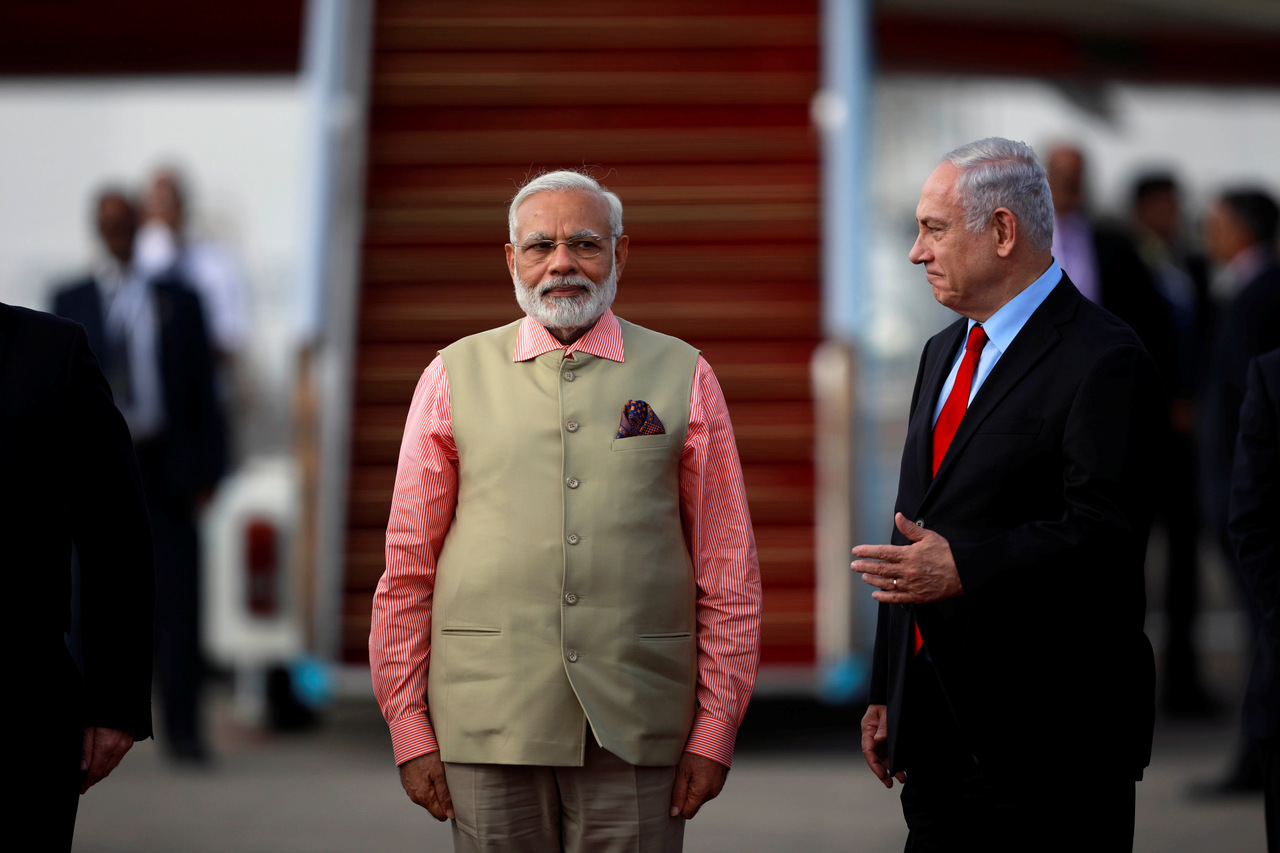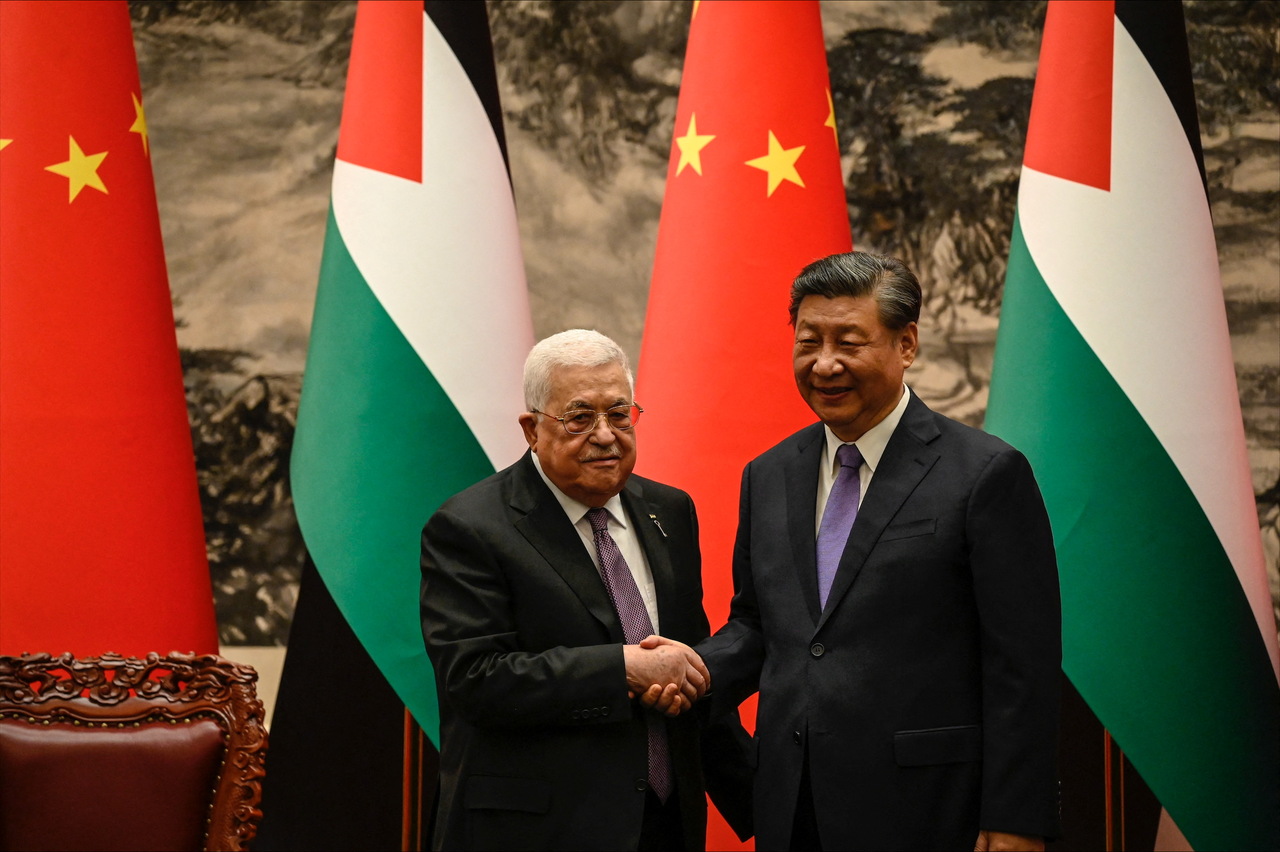India Attempts Balancing Act on Israel-Hamas War
India strongly condemned the 7 October Hamas terrorist attacks and expressed solidarity with Israel. Although it assures that this stance does not mean a change in its traditional support for the creation of a Palestinian state, it differs from the position of most developing countries, whose voice India claims to represent. The convergence of positions between India and the West opens up opportunities for closer cooperation in mitigating the effects of the crisis.
 AMIR COHEN / Reuters / Forum
AMIR COHEN / Reuters / Forum
How did India react to the Hamas attack and Israel’s retaliation?
Indian Prime Minister Narendra Modi was one of the first leaders on 7 October to condemn the Hamas terrorist attacks and assured “solidarity with Israel in this difficult time”. A few days later, the Indian Ministry of Foreign Affairs Spokesperson clarified in the face of criticism from the domestic opposition that the country’s support for Israel does not mean a change in the traditional approach to the Israeli-Palestinian conflict, and India supports the “resumption of direct negotiations towards establishing a sovereign, independent, and viable state of Palestine[…] living side by side at peace with Israel”. India has not criticised Israel’s attacks on the Gaza Strip, but pointed to the need to respect humanitarian law. Prime Minister Modi held talks with, among others, the leaders of Israel, the Palestinian Authority, Egypt, and Iran on the situation, and the Indian authorities focused on providing humanitarian aid and evacuating their own citizens from Israel. On 27 October, in the UNGA vote adopting a resolution calling for an “immediate and sustained humanitarian truce”, India was one of 44 countries that abstained. It explained its decision by noting that the resolution did not directly condemn the Hamas attacks.
What are India’s reasons for its position?
India perceives events in the Middle East primarily through the prism of the fight against terrorism. As a country heavily experienced with attacks carried out by extremist groups (e.g., in Mumbai in 2008), it condemns similar events in other parts of the world and supports forceful measures against terrorists. It also does not want to close the door to retaliatory actions outside its own borders, which it resorted to in 2019 by bombing alleged terrorist camps in Balakot, Pakistan. The lack of condemnation of Israel’s actions in the Gaza Strip also results from the increasingly closer relations with this country in recent years, which has become an important supplier of modern weapons, intelligence data, and a partner in cooperation in the development of modern technologies. India’s attitude also results from the close personal relations built in recent years between the respective prime ministers of India and Israel, Narendra Modi and Benjamin Netanyahu.
How will India’s position affect its relations with Israel and Arab countries?
India has been one of the strongest promoters of Palestinian statehood and did not maintain diplomatic relations with Israel until 1992. In recent years, it has skilfully combined support for the Palestinians with increasingly closer relations with Israel and Arab countries. It promoted the progressive normalisation of Israel’s relations with the countries of the region and the stabilisation of the Middle East. India’s support for Israel in its conflict with Hamas will strengthen bilateral cooperation, especially in the field of counter-terrorism and defence. However, this will be perceived negatively by Arab countries, which may lead to a weakening of their relations with India. There is a small risk of this situation turning into a serious crisis because India has strong ties with Persian Gulf countries, including economically, for example, through the oil trade, and the presence of a large Indian diaspora. The current situation makes impossible the implementation of a project presented in September this year at the G20 summit in Delhi to build an Economic Corridor from India to Europe through Saudi Arabia and Israel, as it depends on the normalisation of relations between those two Middle Eastern countries.
How will India’s position affect its position with respect to the Global South?
Although India is trying to balance its response to the current conflict, its position is perceived as pro-Israel. The price for this stance and failure to condemn the attacks on civilians in the Gaza Strip will lead to a deterioration of India’s position and authority among developing countries. India was the only country among the BRICS members and the South Asian region that did not support the UN resolution of 27 October. Adopting a different position than the vast majority of developing countries on such an important issue undermines India’s aspirations to act as a representative of the views and interests of this group, which was, among others, the main goal of its G20 presidency. This will increase the distrust of developing countries towards India, which will be perceived as a country that has abandoned values important for the Global South in exchange for rapprochement with the U.S. and its allies. Other powers will benefit from such a situation, especially China, which competes with India for the role of leader of developing countries and has sided with the Palestinians.
What does India’s stance mean for its relations with the West?
India’s attitude in this conflict—unlike in the case of the war in Ukraine—is similar to the approach of the U.S. and most EU countries. India has been one of the most vocal critics of Western policy in the Middle East in the past. For example, in 2018, it was one of 120 countries that supported the UN General Assembly resolution criticising the use of force by Israel, contrary to the position of the U.S. and its allies. This time, support for Israel’s position and emphasis on providing humanitarian aid to the Gaza Strip opens up the chance for closer cooperation between India and the U.S. and the EU in the region. The convergence of the attitudes of India and the West makes it impossible to develop a joint critical position of the BRICS countries and thus weakens international criticism of U.S. policy. However, the image and political cost of Israel’s operation in the Gaza Strip, borne by both the West and India, means that it is in their common interest for the conflict to end quickly. The EU can cooperate with India to increase the delivery of humanitarian aid to the Gaza Strip and protect civilians.





